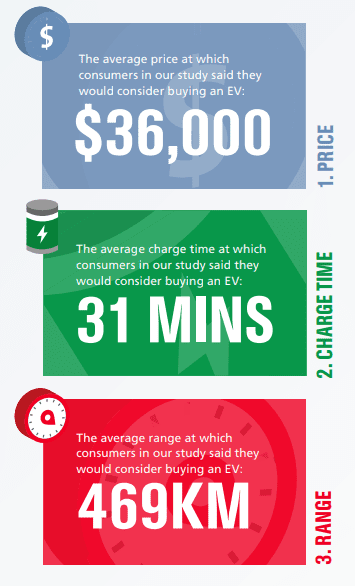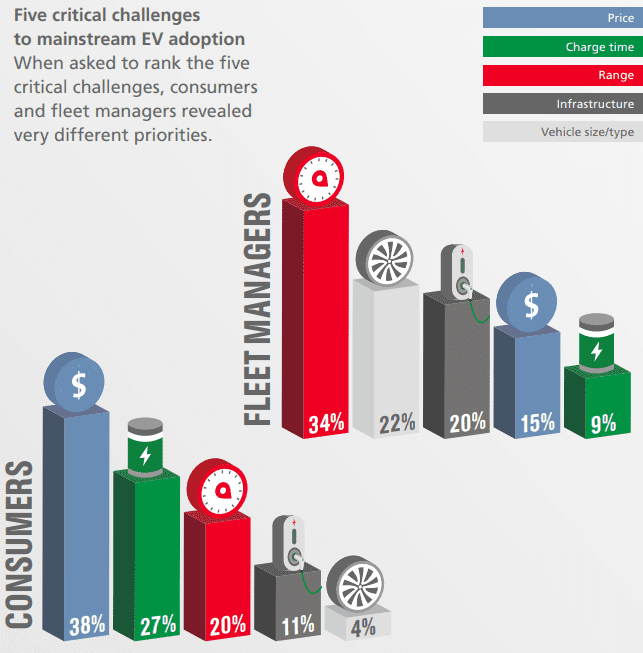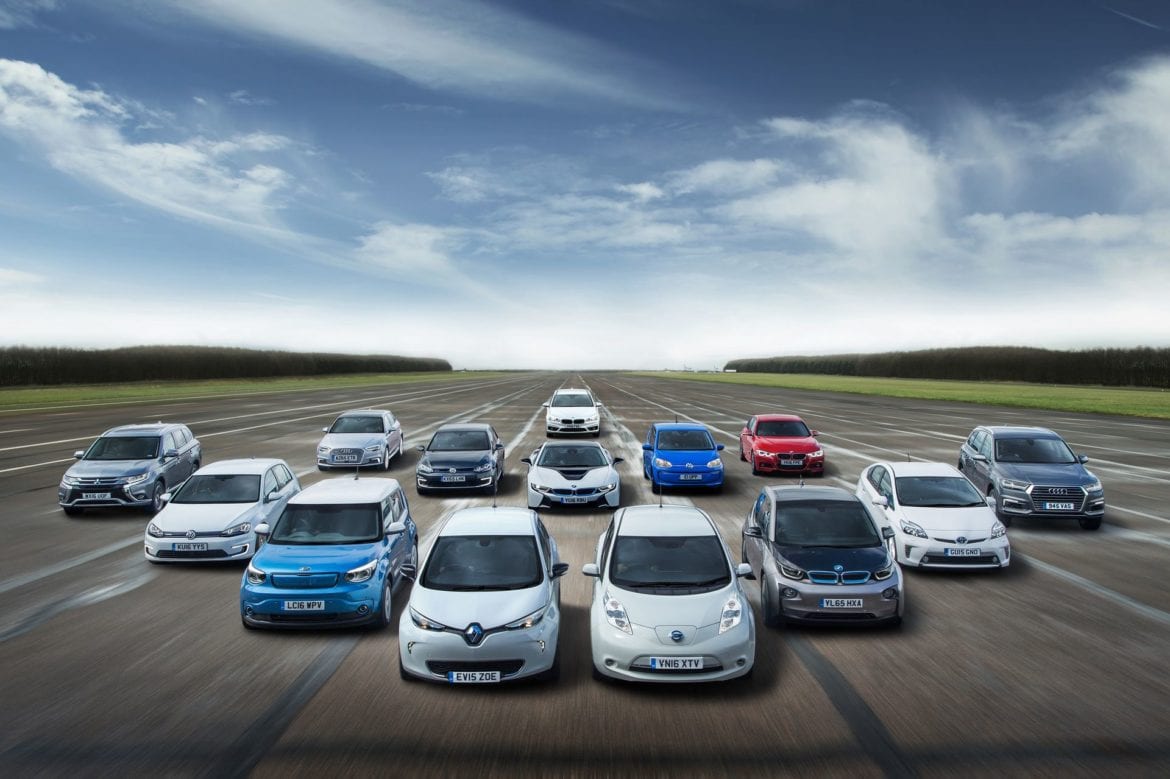It’s anyone’s guess when it comes to when electric cars will reach the “tipping point” that will send them to mainstream acceptance. Some say five years, others say ten, fifteen, twenty years from now. However, a new study commissioned by Castrol, producers of motor oil and other vehicle fluids, states that a majority of customers are ready to buy and EV by 2024 and even have provided magic specifications that will appeal to the majority.
According to the study, an opinion poll was given to 9,000 drivers, 750 fleet owners, and 30 automotive industry professions across the United States, United Kingdom, Norway, France, Germany, India, China, and Japan their opinions on electric cars and how they view their future.
The big take away from the study showed that both regular customers and fleet owners are open to the idea of purchasing electric cars, but are both going with a “wait and see” approach as they believe that there will be significant technological advances in the next 4-5 years.
Although just one in 50 new cars sold is an EV, the majority of consumer respondents to our survey said they themselves would consider buying an EV in 2024, just four years away. However, 61% of consumers are adopting a ‘wait and see’ approach and believe that research and development into battery technology will be fundamental to driving the development of the fully electric car market. And although 58% of fleet managers are personally motivated to make a positive difference to the environment by making their fleet fully electric, over half (54%) are waiting for their competitors to make the switch before they do.
Along with that data, we also received some interesting data about the global ‘tipping points’ in regards to electric car range, price, and charging time that would sway customers into going with an electric car.
 What the study found was that when averaging out the opinions of the eight countries surveyed, the average customer is looking for an electric car that starts at $36,000, has 469 km (291 miles) of range, and can charge in 31 minutes.
What the study found was that when averaging out the opinions of the eight countries surveyed, the average customer is looking for an electric car that starts at $36,000, has 469 km (291 miles) of range, and can charge in 31 minutes.
The optimum tipping points obviously did not only vary by country but also whether the EV would be used for personal or fleet use. For instance, the UK was the most thrifty in regards to their EV price and stated a price of $29,883 while American consumers required the most amount of range of 321 miles. The French required the fasted charge time of 27 minutes. So it seems that the ultimate global EV that will appease everyone will need to be a sub-$30,000, 300+ mile, and sub-30 minute charging electric car (quite a task). While the technology for 30-minute charges and 300+ mile ranges is already here, getting the price down is still an issue for automakers, and according to the survey, it’s the price, not the range that is the biggest hurdle for consumers. In fact, range was ranked third highest after both range and charge time.
The opposite however was true for fleet owners, who claimed that range was the biggest hurdle, followed by adequate vehicle choice and developed electric infrastructure. I tipping points for fleet owners according to the study is a price of $49,500, 341-mile range, and a charge time of 36 minutes which fleet owners put at the bottom of their priorities. This time the UK fleet owners were the ones that required the most range, stating that they needed a whopping 444 miles of range.

It seems like it may be a while before fleet vehicles will be mainstream, but it seems aside from price automakers are already pretty close to what consumers are asking for. Out of curiosity, I averaged out the range and price of 11 popular electric cars (Tesla S/X/3/Y, Audi e-tron, Jaguar I-Pace, BMW i3, Nissan LEAF, Hyundai Kona Electric, Kia Niro EV, and Chevy Bolt) to get a better understanding of where we currently are at.
When averaging out the above 11 EV models, we get an average price of $45,853 and an average range of 264 miles. For those wondering, if you exclude the four Tesla models from the average then it turns into a price of $46,385 and a range of 227 miles. So it looks like we still have a ways to go.
The good news is that basically every automaker who has announced an electric car is targeting a range of 300 miles or more (such as the Mustang Mach-E or Ariya), so range should become less of an issue, especially with more abundant chargers. The bigger issue however will be getting the prices down to the low $30,000 range and it is the aspect that I think automakers will be focusing on over the next years as they try to get their production and battery costs down.
Looking on the horizon it looks like most announced electric cars will be north of $40,000 so it might indeed take us till at least 2025 before we have at least some choices in the lower $30,000 range with a decent range.
What do you guys think of the survey results and when do you think EVs will reach their tipping points? What do you think is the magic number for price, range, and charging time? Let us know down in the comments below.

1 comment
Thanks for the information! We’re closer than most people think!
You have several typos in your article:
Change
ready to buy and EV by 2024
to
ready to buy an EV by 2024
Change
and Japan their opinions
to
and Japan and asked their opinions
Change
the fasted charge time of 27 minutes
to
the fastest charge time of 27 minutes
Change
I tipping points for fleet owners
to
The tipping points for fleet owners